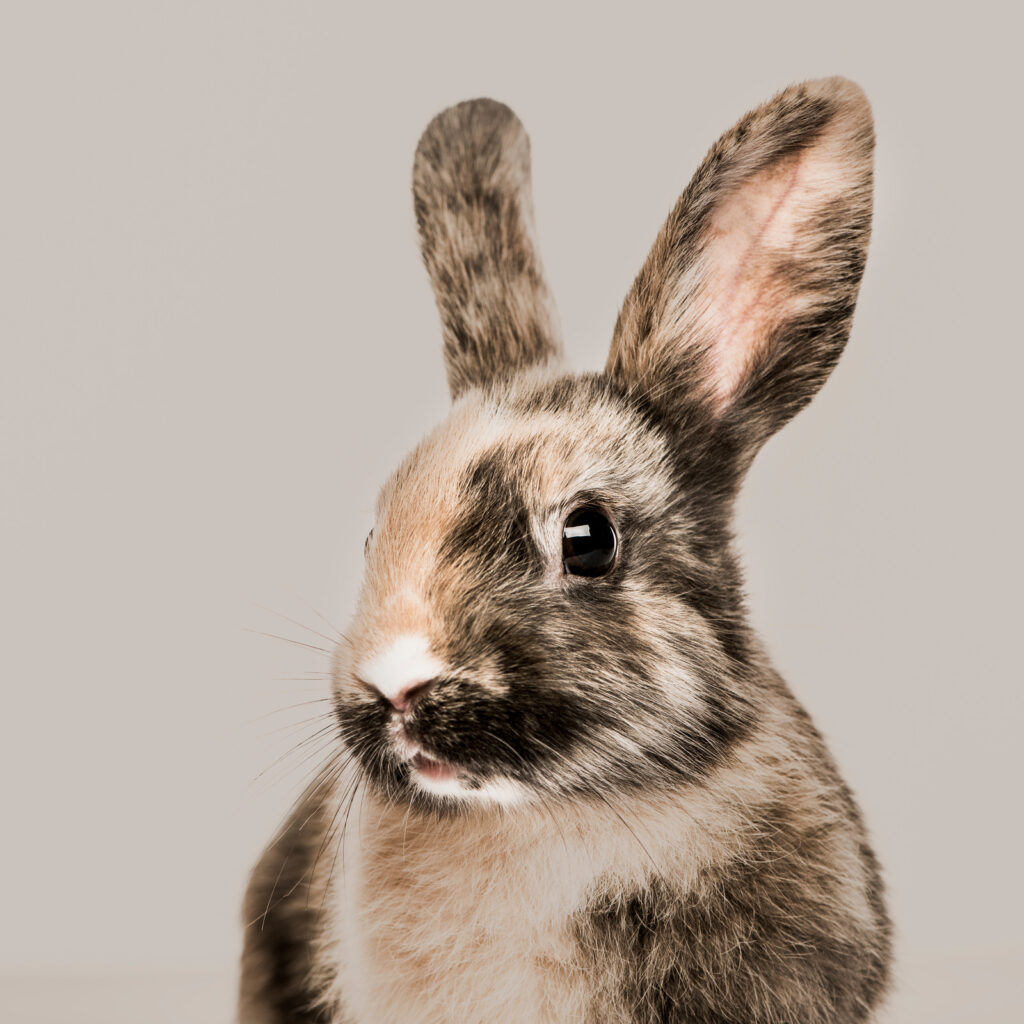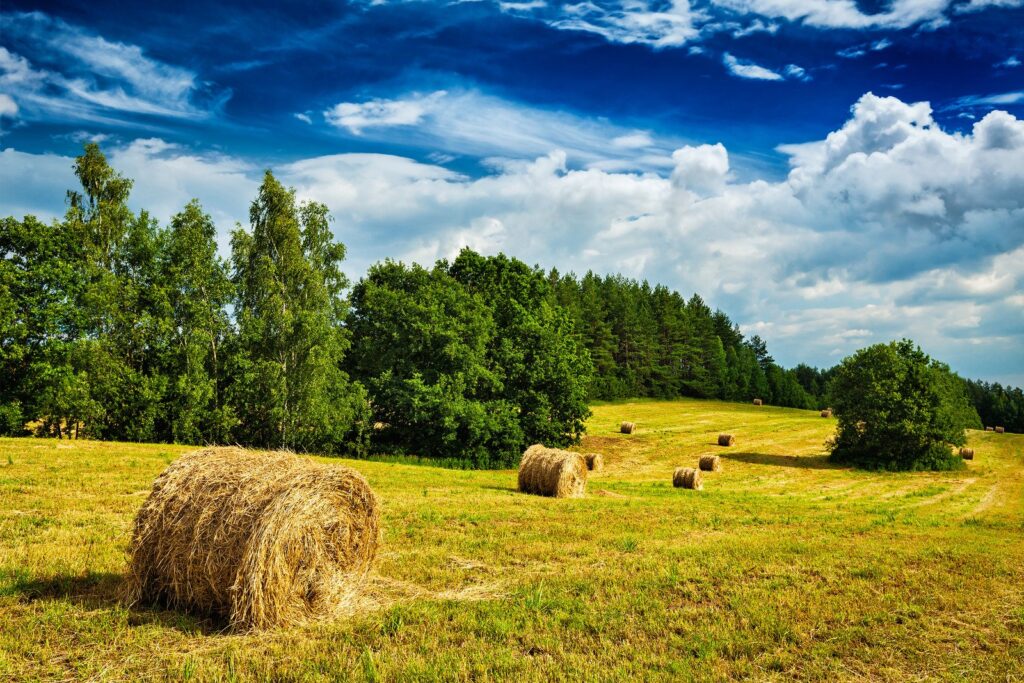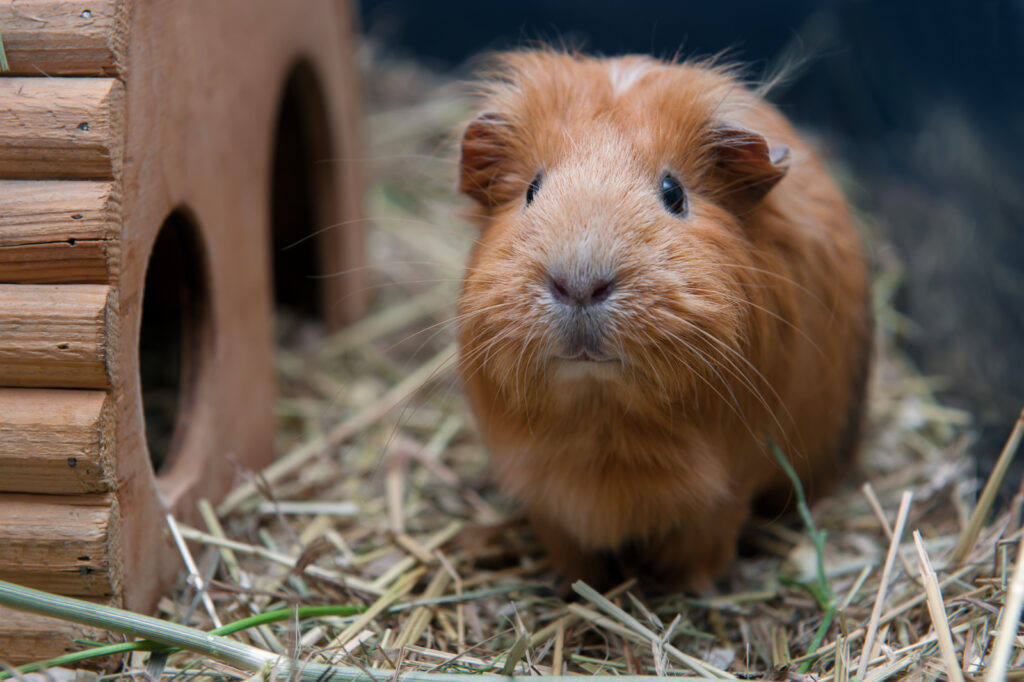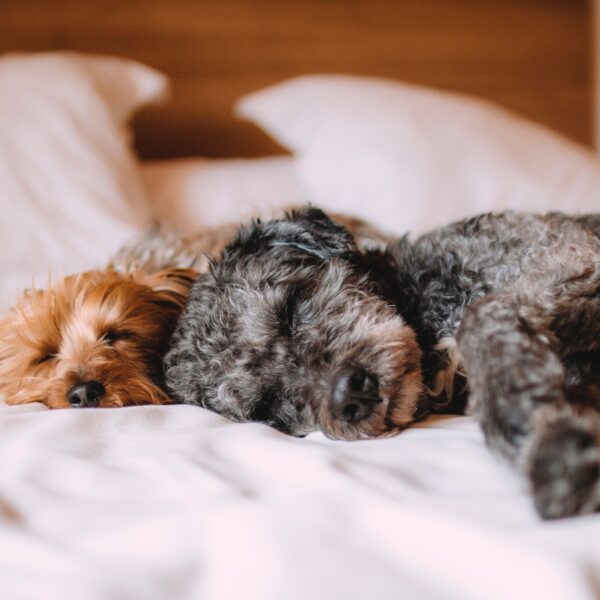Our guide to feeding rabbits and guinea pigs.
Bunnies and piggies love their food! Whether it’s carrots, dandelion leaves, pellets or the occasional treat, most small herbivores thoroughly enjoy having a good munch. But when it comes down to deciding exactly what to feed your fur baby, it can be tricky to know exactly what your pet needs.
The following article provides a straight-forward guide to exactly what grub your guinea pig or rabbits need to help them to lead a happy and healthy life.

What should rabbits eat?
When feeding your rabbit, it’s important to try and mimic the diet they would eat in the wild- which would mostly consist of grass. Whilst fresh grass isn’t always readily available, hay can act as a great substitute and the majority of your bunny’s daily food intake should be made up of good quality hay or grass.
Your bunny should also be given at least a handful of fresh vegetables, which can include carrot, cabbage, cucumber and dandelion leaves, as these will be full of important nutrients and vitamins. Your bunny’s diet should also include a daily tablespoon of good quality pellets (or two tablespoons if your bunny is over 3.5kgs) and it’s best to avoid muesli foods if your pet is selective feeder- as this can lead to the wrong balance of nutrients.
If your bunny ever goes off their food, it’s vital that you contact your vet straight away. This is because not eating can be a sign that your bunny isn’t feeling well, and when rabbits become poorly they can often deteriorate very quickly.
Why do rabbits need hay?
It’s important to get your rabbit eating hay, as this will encourage them to chew for long periods. Chewing hay will wear your bunny’s teeth down, which helps to prevent them from overgrowing and causing serious dental problems. Hay also has a high fibre content which is crucial for your bunny’s digestion and will reduce their risk of developing serious and sometimes fatal digestive problems.
How much hay should a rabbit eat a day?
Your bunny should always have access to unlimited hay! Hay is such an important part of a rabbit’s diet you should always provide them with enough to munch on whenever they please.
If you decide to transition your bunny over from eating rabbit food to a mainly hay-based diet, it’s important to start off by feeding them a rabbit food with a high hay content- so your bunny has a chance to get used to the taste and texture.

What type of hay is best for rabbits?
Make sure you select a good quality hay for your bunny. Whilst bedding hay is good for your rabbit to snuggle up in, it’s best to also provide your bunny with feeding hay to eat as this contains far more nutrients (but don’t worry if your bunny occasionally snacks on bedding hay as well!). You can tell the difference between bedding hay and feeding hay because feeding hay is generally greener and smells fresher.
Oaten, Pasture, Wheaten, Paddock, Ryegrass, Meadow and Timothy hay are all good for rabbits. And it’s best to avoid Clover hay, and only give Lucerne (alfalfa) hay to young and growing bunnies, because these hays are often too high in protein and calcium for bunnies and can lead to urinary stones.
Can I give my rabbit treats?
Fresh veg can be given to rabbits as a healthy treat! However, not all vegetables are safe for rabbits- so if you’re thinking of giving your bunny vegetables, make sure you do your research first, and if you’re not sure- ask your vet! Once you’re sure the veg you are giving is rabbit-safe, you can cut it into bite-size chunks and hide it in your bunny’s hay so they can have fun foraging around for it!
Your local pet shop is likely to have a quite a range of bunny treats, however it’s best to feed these in very small quantities, and it’s worth opting for products that do not contain added sugar, as this is bad for your bunny’s teeth, digestion and can lead to obesity.

What about guinea pigs?
Like rabbits, guinea pigs should also have access to constant hay. As well as guinea pig pellets (check manufacturer’s guidance for portion size), they can have a daily teacup-sized amounts of fresh greens. It’s important to make sure that the pellets you feed your pig are high quality and made especially for guinea pigs (not rabbits or other small herbivores) as this will mean they contain vitamin C- more on this later.
Why do guinea pigs need hay?
It’s really important that pigs get a lot of hay as, just like with rabbits, it helps them with their teeth and digestive system. And it’s best to select a good quality feeding hay for your pig as this will be bursting with nutrients. Timothy, Oaten and Barley hay are all good for guinea pigs, but Lucerne (alfalfa) and Clover hay should be avoided as, just like in rabbits, these hays can lead to urinary stones.
Why do guinea pigs need vitamin C?
Most animals have an enzyme which mean that they’re able to make their own vitamin C. However, guinea pigs (like humans) lack this which means it’s vital that vitamin C is supplemented daily in their food. Most guinea pig feeds will contain vitamin C, but it’s important to follow the manufacturer’s guidance on portion size (to make sure you are meeting your pig’s daily allowance) and storage instructions. You should also make sure you throw the food away after the used-by-date has passed, as the vitamin C levels in the food will go down after this.
Whilst pellets can normally provide your pig with their daily vitamin C requirements, leafy greens including spinach, broccoli and kale also contain vitamin C and there are also supplements that you can add to your pig’s food- but it’s always important to make sure these supplements are made especially for guinea pigs!
It’s super important that guinea pigs get the right amount of vitamin C as without it they can become very poorly. If you’re unsure if your pig is getting enough vitamin C, it’s always best to speak to your vet for advice.
Which other pets need hay?
Chinchillas and degus need constant access to good quality hay because (as with guinea pigs and rabbits) this will help to wear their teeth down and helps them to maintain a healthy gut. Timothy or Meadow hay is best for degus, and chinchillas should be fed Timothy, Orchard Grass, Oat or Meadow hay.
Want to read more about guinea pigs, rabbits and other small furries? You can find more articles here.


